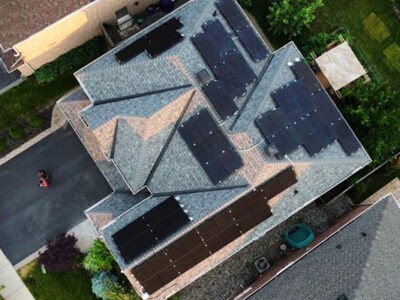In Nova Scotia, residents are finding innovative ways to maintain power in their homes during the frequent winter storms and power outages that plague the area.
Leading the way in this initiative is Nova Scotia Power (NSP), which has introduced a battery storage technology through a pilot project as part of its $19-million smart grid program.
Innovative Solutions for Power Outages
This program has equipped 125 households across the province with electrical storage batteries, such as the 18.6-kilowatt-hour Sunverge Infinity battery installed in Tom MacPherson’s home.
These batteries offer up to three days of power during outages, providing peace of mind and convenience for a $35 monthly fee.
After ten years, homeowners will own the batteries, which are currently considered NSP property. NSP is responsible for controlling the charging of these batteries, typically during off-peak hours or when there is an excess of clean energy.

Nova Scotia Power generates more than 2,400 megawatts of electricity that is delivered across 32,000 km of transmission and distribution lines. (Andrew Vaughan/Canadian Press)
One significant advantage of these batteries is their reliability. MacPherson shared how during post-tropical storm Fiona in September 2022, the batteries powered his home for three days, ensuring his family’s comfort and safety.
He emphasized the convenience of the system, stating, “Before a storm, I get an email saying we are topping up your batteries because there’s a storm coming.
The batteries automatically kick in when the power goes out, and they usually last about three days.”
These batteries not only support individual households but also assist NSP in managing the grid by providing additional energy during peak demand periods or when renewable sources are not available.
The Path Forward
While the pilot project has been well-received, with many homeowners expressing satisfaction, the cost of installation, ranging from $12,000 to $14,000, poses a significant barrier for widespread adoption.
NSP is exploring ways to make battery storage more accessible to more people, viewing it as a crucial component of home resilience amidst increasingly severe weather.
Looking ahead, technologies like battery storage could become more common, giving homeowners greater control over their energy supply and reducing reliance on traditional power sources.
MacPherson is optimistic about the future and is considering adding solar panels to his setup for even greater energy independence during outages.
Through initiatives like NSP’s battery storage program, Nova Scotians are better equipped to face power disruptions, ensuring they have the power they need, whenever they need it.














Comments